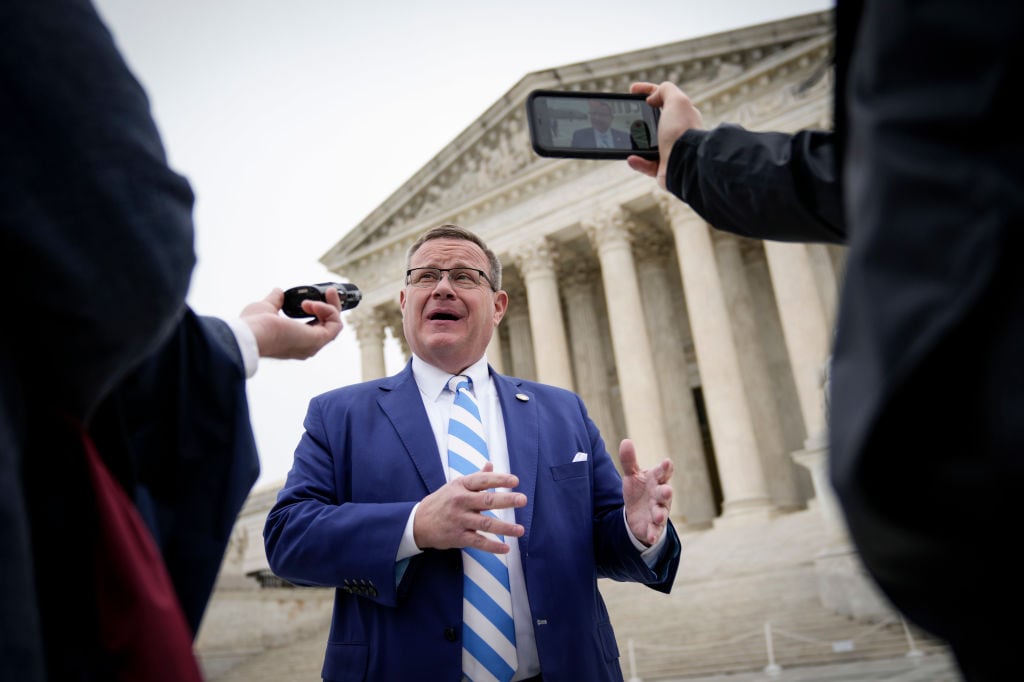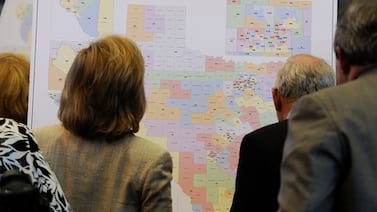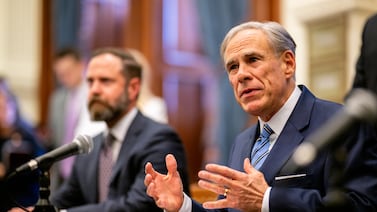Votebeat is a nonprofit news organization reporting on voting access and election administration across the U.S.
A version of this post was originally distributed in Votebeat’s weekly newsletter. Sign up for our free newsletters here.
Elections have consequences, as people love to say, and the election of two new GOP justices to the North Carolina Supreme Court has shaken the voting world.
I know that sounds dramatic but, let’s consider all of the things this newly-shifted court made happen in a single day:
- The photo ID mandate approved in late 2018 by Republicans in the legislature will be enforced in 2024.
- The North Carolina Legislature will also have a freer hand in drawing legislative boundaries, reinforcing Republican majorities for at least the next decade.
- The Supreme Court also overturned a trial court decision on the restoration of felon voting rights, leaving tens of thousands of people waiting until they complete probation or parole.
They rendered these decisions after revisiting rulings made by the very same court back in December, when Democrats held a slim majority. The choice to do that was basically unprecedented, and the state Supreme Court has taken full advantage of the opportunity, reversing nearly a decade of work by local activists to expand the franchise in the state in one go.
As you likely know, the North Carolina Supreme Court’s December decision to reject the maps as illegal gerrymanders led state legislators to race to the U.S. Supreme Court to challenge their loss on the grounds of the “Independent State Legislature Doctrine” — until recently considered a fringe theory.
After the state Supreme Court announced it would rehear the cases, the U.S. Supreme Court asked parties in the case, Moore v. Harper, to submit briefs addressing this development by the end of March. Now that these same legislators have been handed a retroactive win, the case may well be moot, as legal experts have assumed for months.
You can read a wonderful tick-tock of the progression of this case here from UCLA legal scholar Rick Hasen, who also made this point: “If Republican state justices in North Carolina moot Moore, it might simply delay an outcome on an issue that should be resolved sooner rather than later.”
Indeed! A case out of Ohio — Huffman v. Neiman — is a possible vehicle to carry the argument forward, for example.
Republicans also show no signs of backing down on this issue, and some have even made it a central part of their campaigns this year.
For example:
Earlier this year, I spent quite a while talking to Mac Warner – the secretary of state in West Virginia and a Republican currently running for governor.
Unprompted during our conversation about his views on the 2020 election, he enthusiastically mentioned a “big case: Moore v. Harper coming out of North Carolina” that would surely uphold his view of the truth of the independent state legislature doctrine.
Pressed for more information, he took out a thick lawbook and flipped to the tiny portion of the U.S. Constitution on which this theory hinges — it was pre-highlighted: “The Times, Places and Manner of holding Elections for Senators and Representatives, shall be prescribed in each State by the Legislature thereof.”
The idea that there was a different interpretation of implications of this single section — single word, really — of the Constitution appeared to genuinely puzzle him. He felt, it seemed, absolutely confident that his interpretation was the only possible correct one, and was prepared to defend it regardless of what I threw at him. He had a prop!
While the independent state legislature doctrine was referenced in a single Bush v. Gore concurrence and has been lightly batted around by the court’s most conservative justices during recent election cases, it is otherwise seen by legal experts as a radical departure from conventional interpretations of that clause. One amicus brief signed by a number of people with the rare distinction of being household names in the legal world argues the doctrine is invalid under “every tool of constitutional interpretation.”
A whole bunch of other people have said pretty much the same thing, but all of these people and the Mac Warners of the world cannot be right at the same time. Now, each side will simply be crossing its fingers, hoping that by the time the Supreme Court really does sort it out, the Justice Math might be more in their favor.
What does that mean for everyone else? Uncertainty remains the name of the game, for now.
Back Then
In 1899, North Carolina adopted a “multi-box law” for the first time, implementing it for a 1900 referendum on the makeup of the electorate. The system itself was a method of disenfranchisement. In this ballot-casting system, separate boxes were used for each race: president, governor, state representative, etc. If ballots were inserted into the incorrect box, they were not counted. The boxes were then moved throughout the day to prevent others from arranging tickets of illiterate voters in order on their behalf. While voters could ask the judge to read the names, there is wide speculation by historians that voters of color and illiterate voters received little help: all election offices were appointed by the Democratic governor. The boxes served as a de facto literacy test, at least for a time. If you know more about this, please reach out.
New From Votebeat
From Votebeat Arizona: Arizona voters were told the election went fine. Records show a county director saw glaring errors, cashed out, then fled.
From Votebeat Texas: Texas legislature advances bill to eliminate Harris County election chief
From Votebeat Texas: Here are the Texas election bills to watch with a month left in the legislative session
From Votebeat Texas: True the Vote co-founder Alan Vera dies at Texas Capitol moments before scheduled testimony on election bills
In Other Voting News
- Oregon Secretary of State Shemia Fagan, a Democrat, resigned last week after admitting she had a $10,000-a-month contract to consult for a cannabis company owned by two of her political donors, which was reported by Willamette Week. The governor will appoint a successor to serve out the remainder of Fagan’s term.
- Voters last week recalled a Michigan township clerk who was prohibited from handling elections after state officials said she improperly handled voting equipment. Stephanie Scott, a Republican, had cast doubt on President Joe Biden’s victory in the 2020 presidential election, the Detroit News reported.
- A new law in Georgia makes it a felony for local officials to accept private funding for elections, the latest in a series of laws restricting such donations around the country in the wake of millions of dollars in grants from nonprofit groups given toward the costs of the 2020 election, the Atlanta Journal-Constitution reported.
- Bipartisan legislation to update Alaska’s voting laws — establishing ballot curing, signature verification, and ballot tracking requirements, among other things — progressed out of a state Senate committee this week, the Anchorage Daily News reported.
- Several of the initial 20 arrests made by Florida’s Office of Election Crimes and Security have been dismissed or yielded plea bargains with no jail time, the Washington Post reported, but the arrests themselves have nonetheless resulted in job losses and other personal consequences for those charged with voting illegally.
- The 2022 midterms had the second-highest turnout of any midterm election this century, according to estimates from the U.S. Census Bureau released last week, and roughly half of voters cast ballots early or by mail, with Asian American voters the most likely to have done so and Black voters the least, NPR reported.
- The Arizona Supreme Court is ordering lawyers for former GOP gubernatorial candidate Kari Lake to pay $2,000 in sanctions over what they said were “unequivocally false” claims made in court, the Arizona Republic reported.
Jessica Huseman is Votebeat’s editorial director and is based in Dallas. Contact Jessica at jhuseman@votebeat.org.





